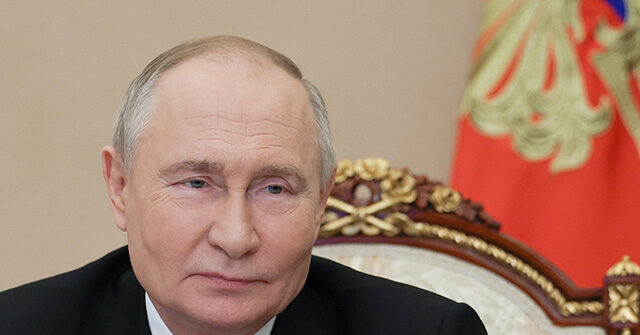The Kremlin expressed cautious optimism regarding potential shifts in U.S.-Russia relations following Donald Trump’s second presidential election win. Dmitry Peskov, the Kremlin spokesperson, acknowledged the historical lows of the relationship, cautioning that any further deterioration seems unlikely, but any improvement will heavily depend on the new U.S. leadership. Peskov maintained that President Vladimir Putin is open to engaging in “constructive dialogue,” emphasizing fairness and equality. This sentiment reflects a broader suspicion within Russian leadership about Trump’s capability to fulfill promises, particularly regarding peace efforts in Ukraine, given the ongoing military conflict and the U.S. government’s persistent opposition to Russia’s actions.
Russian officials, including Foreign Ministry spokeswoman Maria Zakharova, suggested a pragmatic view of the upcoming U.S. presidency, regardless of who assumes office. Zakharova emphasized the need for the next American leader to prioritize domestic issues over foreign conflicts. She expressed a belief that the current bipartisan stance in the U.S. regarding Russia would persist, indicating that a fundamental shift in approach is unlikely irrespective of electoral results. This sentiment reveals a deeper skepticism about the potential for meaningful dialogue and cooperation, as Russia sees the U.S. primarily as an antagonistic force.
Former Russian President Dmitry Medvedev, known for his stark warnings regarding nuclear escalation, presented a mixed perspective. On one hand, he speculated that Trump’s administration could present challenges for Ukraine, given Trump’s known aversion to unnecessary military expenditures. Medvedev’s comments alluded to the tension between Trump’s business-oriented approach and the entrenched systems within U.S. politics that might resist drastic changes to foreign policy. His remarks reflect the concerns of the Russian elite regarding the unpredictability of U.S. policies and the potential consequences for global stability.
In contrast, Kirill Dmitriev, CEO of Russia’s sovereign wealth fund, painted a more positive picture, interpreting Trump’s victory as a rejection of the current administration’s policies. Dmitriev congratulated Trump on his success, attributing it to public dissatisfaction with perceived disinformation and incompetence emanating from the Biden administration. He posited that this shift in U.S. political sentiment could pave the way for a reevaluation of U.S.-Russia relations, highlighting an opening for new dialogue. This nuanced perspective indicates that within Russian business and political circles, there is a glimmer of hope that Trump’s leadership may yield more favorable conditions for bilateral engagement.
Despite these mixed feelings, it is evident that skepticism remains prevalent among Russian officials regarding Trump’s ability to circumvent the established political landscape in the U.S. While there are voices within Russia that foresee opportunities for better relations, there is also a deep-seated caution grounded in the reality of ongoing geopolitical tensions, particularly surrounding Ukraine. Russian leadership seems to recognize that external factors and American domestic policy will significantly influence any potential reconciliation efforts.
In summary, the Kremlin’s cautious approach toward Trump’s second presidency underscores a complex tapestry of hope and skepticism. The leadership’s response reflects an awareness of the geopolitical challenges that define U.S.-Russia relations, coupled with an acknowledgment of potential changes in American domestic politics. As Russia grapples with the ramifications of its actions in Ukraine and broader international standing, it remains to be seen how the second Trump administration will navigate these enduring tensions and whether any substantive dialogue can emerge in a climate often characterized by mistrust and antagonism.

